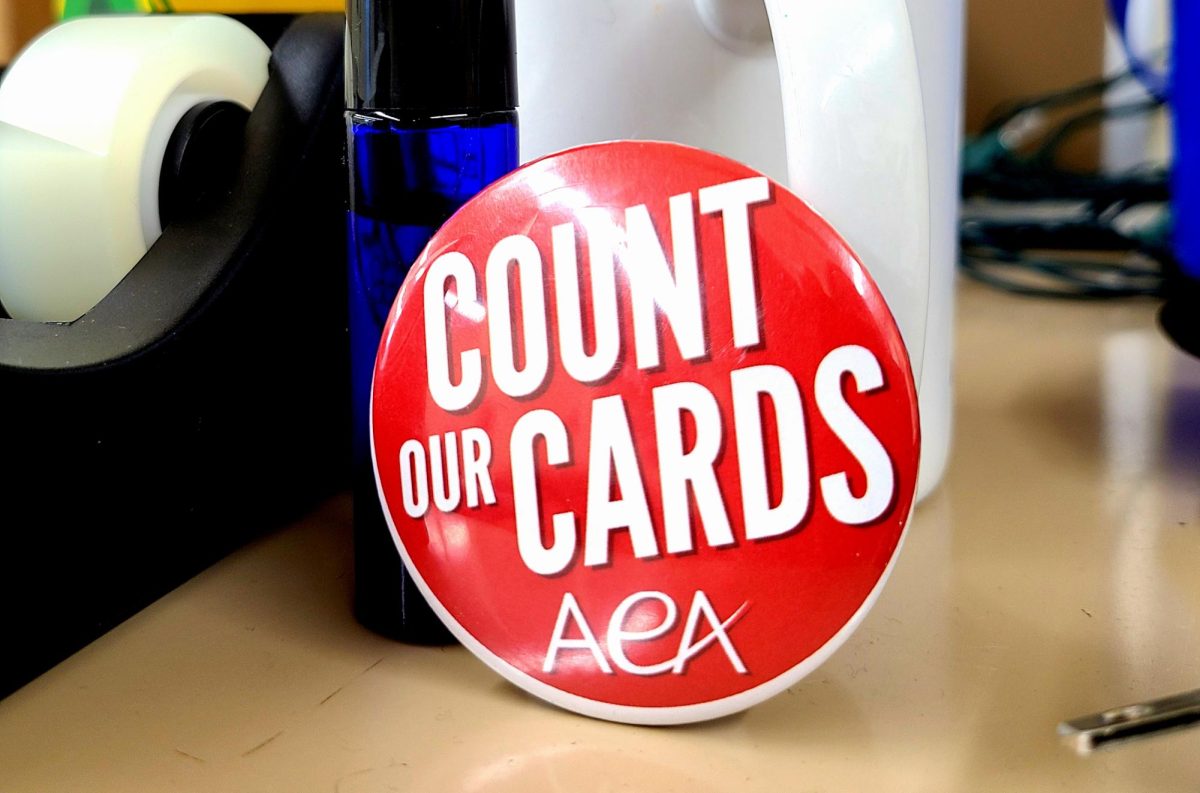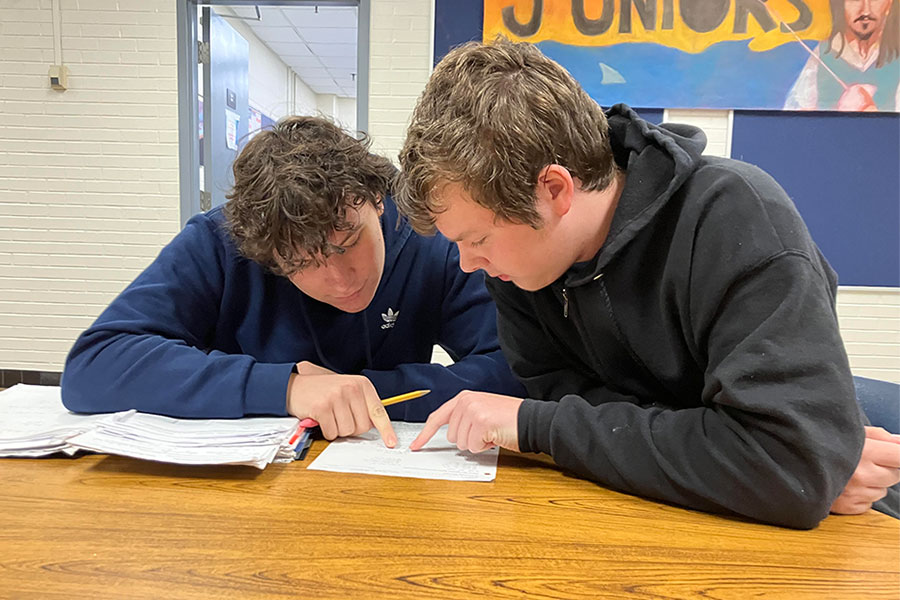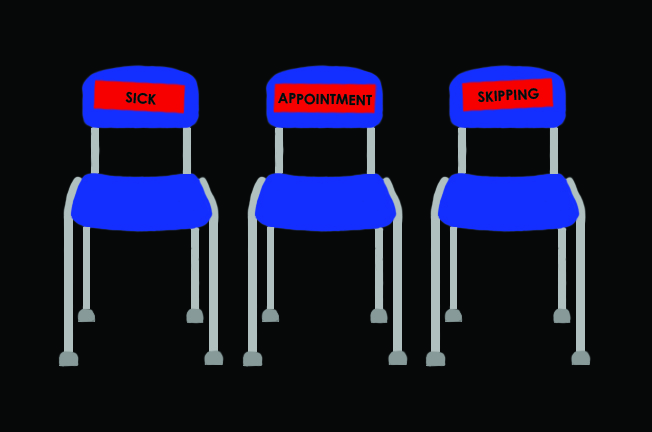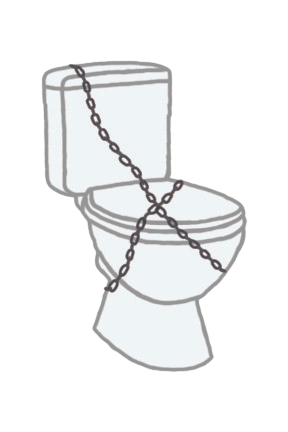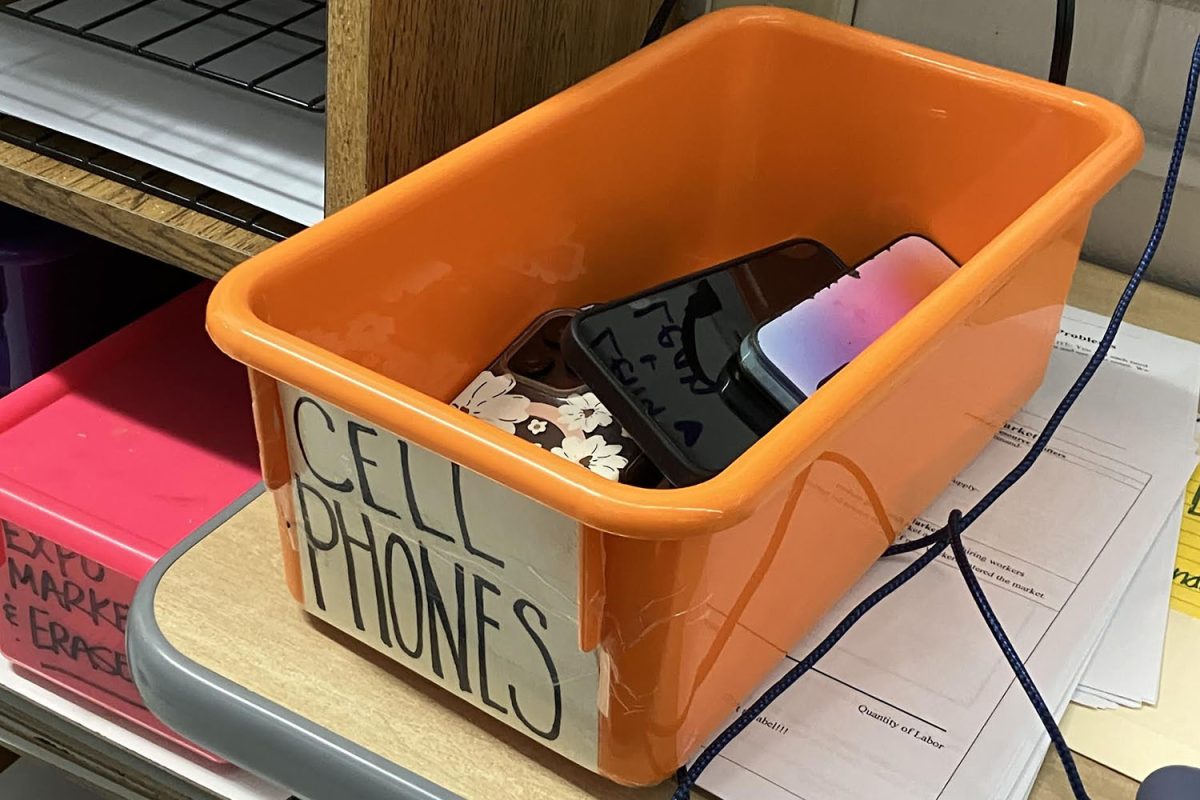Ah, the school grading policy. What is it? When asked about the tenets of the grading policy and its purpose, many students either didn’t know or had an inherently negative view of the policy (i.e. “they think we’re stupid” or “I don’t even think the county knows”). It is concerning that there is this much hesitation and confusion surrounding a system that affects every student and teacher at this school, so let’s talk about it.
First, a summary of the grading policy: formative grades (which means homework and practice, which you do to learn the subject) remain ungraded to give students the space to master the material. Final grades are also not based on behavior in class, nor are students penalized for late work. Instead, final grades are based solely on summative assessments, and those cannot be graded below a 50. Finally, teachers must offer retakes on all summative assessments. Retakes are administered after feedback is provided to students, and teachers can choose to accept new work within a specified window. These policies were put in place to support the ACPS framework for quality learning, which students can read about here.
Why does this policy exist? Science teacher Malinda Smith asserts that the policy is intended to ensure that student grades reflect student understanding, untainted by behavior or practice grades. “Since my first year of teaching, I’ve been slowly backing off the point values of formative work because I keep seeing discrepancies in student grades,” Smith explained. Smith observed some students who understood the material without needing the practice of homework, as well as other students who did the homework but who did not understand the material. Consequently, she stopped giving homework grades even before it was a county mandate.
On the other hand, French teacher Candace Cone argues that repetitive work can be necessary to succeed in her subject. She explained that to learn a language, you have to do the homework, even without the threat or reward of a grade. “We’re asking students to delay instant gratification for a reward later on,” Cone said, on the subject of ungraded formative work.
This incongruence of perspective also spreads to other aspects of the classroom, such as retake policies. Currently, all teachers are expected to give opportunities for retakes on all summative assessments, although they have the option to require additional work from students within a set time period to qualify for a retake. However, Cone pointed out that many people who come in for French retakes often don’t score very far above their original grades. And, as 11th grader Ollie Nacey pointed out, the current policy can be abused by students who don’t prepare for a test, knowing that they will be able to retake it, which burns teachers who have to spend more of their own time preparing retakes.
Smith has long offered retakes in her science classes, but prior to the county mandate, utilized what she called a “gradual release” program. The idea of this system was to give students access to retakes on the first couple of exams, and then slowly wean them off of them. “On those first few tests there was a safety net, but ultimately we held students responsible for learning how to better prepare for tests,” Smith said, explaining the approach. Systems like this one, however, are no longer possible under the grading policy.
However, some students appreciate retakes. “I would not consider myself to be someone who doesn’t care, but I have found myself in a situation where, for various reasons, I am not able to perform well on something,” Ollie Nacey said. “I think it’s unfair to hinge my entire academic future on a few slip ups.” Nacey went on to explain that outside factors such as emotional state, family or friend issues, and wellness could also certainly affect student performance.
Another element of this policy is the change of the grading scale from 0-100 to 50-100. “The rationale is that every other letter grade is a ten-point scale,” Cone said, regarding the change. Regardless of this explanation, both teachers had some worries about how this policy would affect student learning. With the new policy, a student interested in gaming the system could reasonably master less than 20% of class content and still receive a passing grade.
Student Ollie Nacey, however, had a different view on the topic, believing that it can help students who are struggling. Ollie went on to explain that he thinks that individual student grades should be between the teacher and student, and the grading system should support all students, even though everyone learns differently.
Principal Sublette had this to say about the changing systems. “With anything that is as monumental as grading, especially in a school where students value what they’re doing and their grades, it’s going to be complex; change theory will tell you that any sort of large-scale change like this is going to be complex. I’ve appreciated that teachers are asking questions, getting clarification, and keeping the conversation open.”











